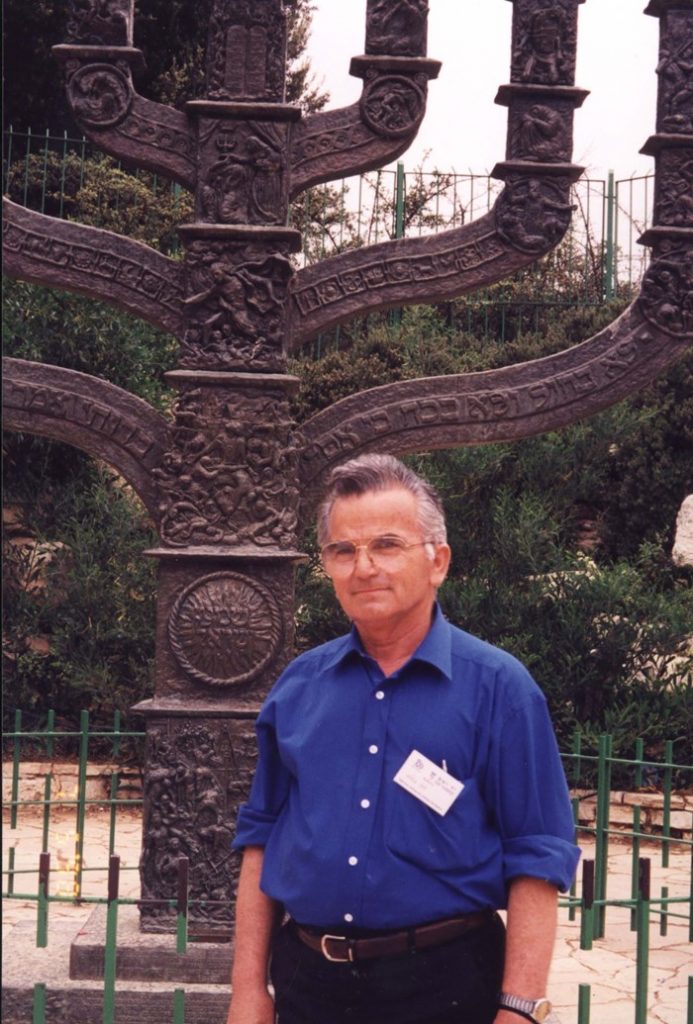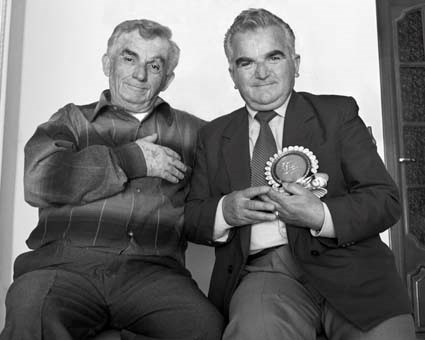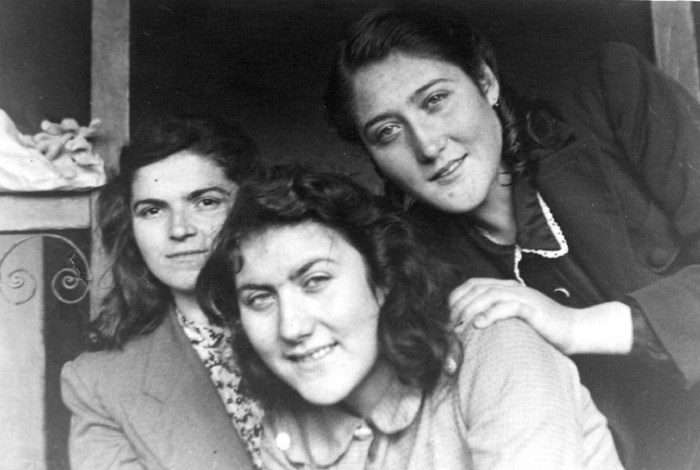
In 1942, 16-year-old Rachel Bachar (later Lazar), her mother, Alegra, and her three sisters, Jehudith, 18, Jaffa, 14, and Matilda, ten, fled from Priština, in Kosovo, and headed for Albania. They crossed the border on foot and then continued to Berat, south of Tirana, where they joined the father of the family, Asher Bachar, who had been deported to there one year earlier. Mr. Bachar found lodging there for himself and his family, obtained false papers that said they were Muslims, and managed to earn a living to provide for his family. When the Germans took control of Albania in September 1943, the Bachar family began to wander from place to place in the mountainous region around Shkodër. The Bachars were having a difficult time – they were sleeping under the stars and eating berries and whatever else came to hand. One day, in despair Mr. Bachar entered a store in a village near Shkodër and asked for help. He told the shop owner that he was a Muslim refugee from Podgorica, he was hiding in the mountains with his wife and four daughters, and he could not provide for his family. The shop owner sympathized with Mr. Bachar and sent him to his cousin Hasan Hoti, who agreed to find shelter for three of the girls. Rachel was hidden with his sister, Fife, who lived in the same courtyard, and Hasan’s daughter Çele (Celja), who was the same age as Rachel, became her friend and confidant. Hasan dispersed the other girls among members of his family elsewhere in the village.
The Bachar parents took Matilda and found refuge in another village. Vehbi, one of Hasan’s sons, took care of supplying provisions to the hidden Jews and acted as an intermediary between the family members. Wherever they were hidden, Hasan and his family took care of the girls until the liberation in November 1944. On June 22, 1994, Yad Vashem recognized Hasan Hoti, his sister, Fife Gjylbegu, and his children, Çele Fani and Vehbi Hoti, as Righteous Among the Nations.


